Archives
-
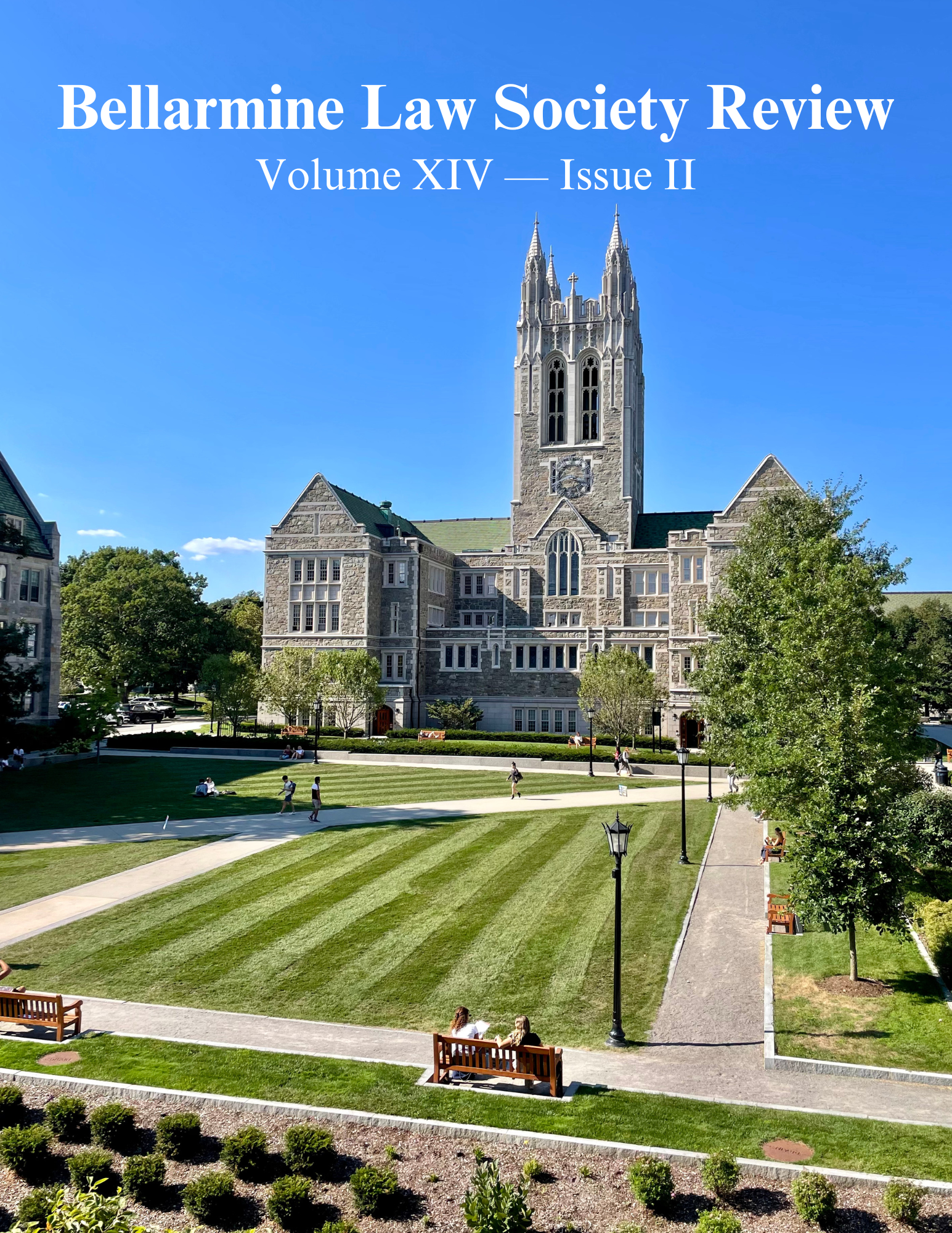
Bellarmine Law Society Review
Vol. 14 No. 2 (2024)It is with great pleasure that I invite you to this second issue of the Bellarmine Law Society Review's fourteenth edition, where we present three thought-provoking articles that engage with pressing legal and societal issues from diverse perspectives.
In our first feature, “Affirmative Action Revisited: The Future of Collegiate Admissions,” senior Will Dee examines the evolving landscape of affirmative action in U.S. higher education. With the landmark case Students for Fair Admissions v. Harvard fresh in public discourse, Dee provides an insightful analysis of the tension between diversity goals and the principle of equal treatment under the law. Next, in “Unconstitutional Constitutional Amendments: Is the Application of this Doctrine Always Justified?” exchange student Pablo Galindo Lema tackles the complex issue of constitutional amendments and the controversial doctrine of unconstitutional constitutional amendments. By exploring sovereignty, constituent power, and Carl Schmitt’s constitutional law theory, Lema builds a case for when this doctrine should apply. Finally, senior Jenna Gilhooly’s “Censoring Film and Filming Censorship: A Legal Analysis of the Origins and Legacy of Film Noir” delves into the intersection of law and cinematic art. Through an exploration of early 20th-century film regulation and the Hays Code, Gilhooly reveals how the Film Noir genre both challenged and adapted to censorship.
As we wrap up this issue, Tommy Dee and I are excited to share that we welcomed two new copyeditors this semester, Alisa Fixler and Syesha Swani, in anticipation of this publication, and we are grateful for their hard work and fresh perspectives. This fall, BLSR saw a record-breaking number of submissions, making the selection process highly competitive, which speaks to the exceptional talent of our contributors. The Board is proud to present a diverse range of insightful pieces that not only engage with important legal issues but also encourage critical reflection on their societal implications. We hope our readers enjoy these articles and find them as thought-provoking as we do. As we close out this edition, we wish all our readers a happy, healthy, and prosperous New Year!
-
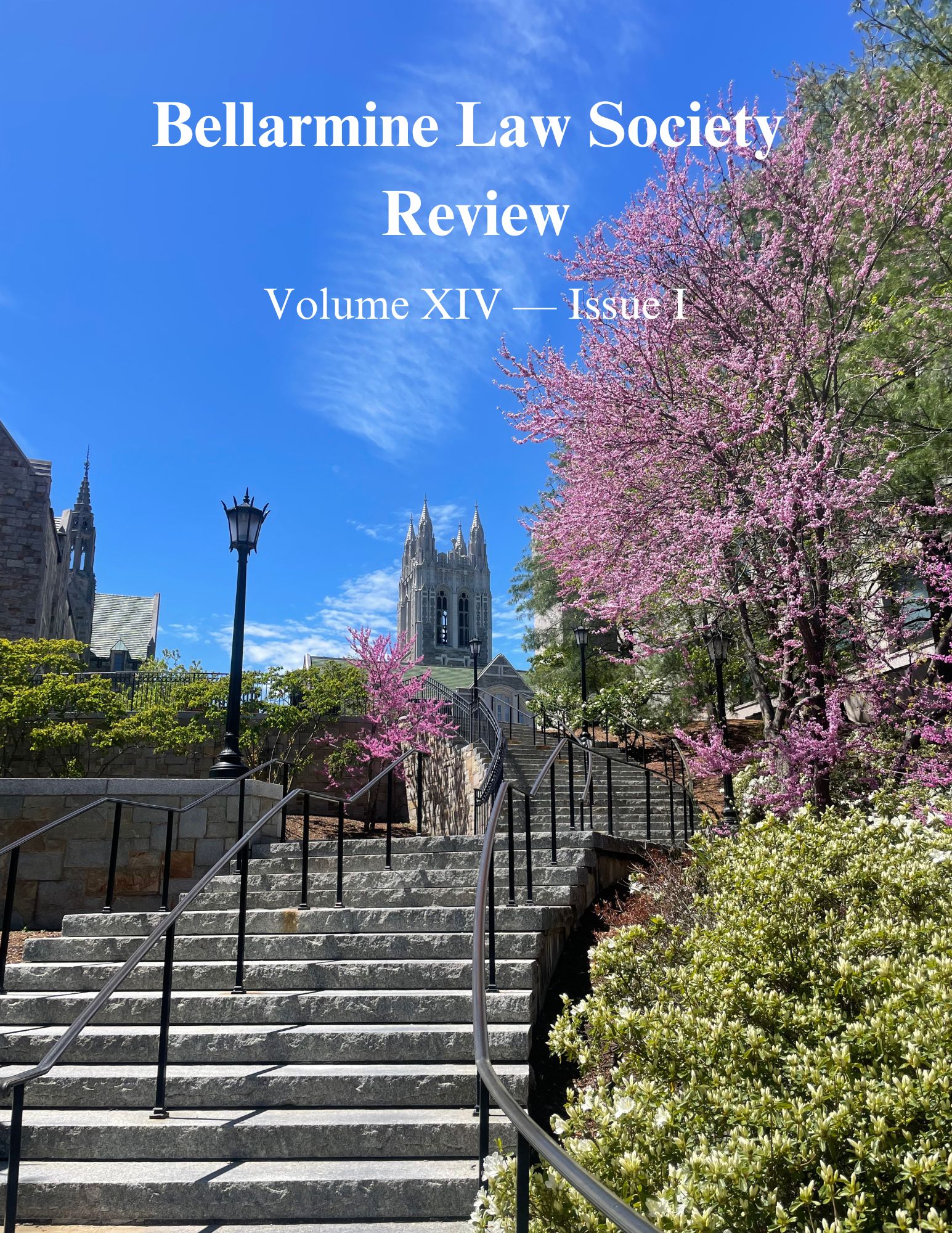
Bellarmine Law Society Review
Vol. 14 No. 1 (2024)In the spring edition of the Bellarmine Law Society Review’s (BLSR) fourteenth volume, three undergraduate authors offer compelling examinations of contemporary legal challenges, each shedding light on different facets of our evolving legal landscape, specifically presenting pressing issues that intersect law, society, and technology. First, rising senior Caroline Corcoran succinctly delves into the nuanced interpretation of threats under federal law, examining the complexities of First Amendment rights, intent, and the objective assessment of threatening communications. Next, class of 2024 graduate Francis Hodgens confronts the housing affordability crisis gripping Greater Boston, analyzing and critically evaluating the efficacy of the MBTA Communities Act. Finally, rising junior Joseph Murphy tackles the intricate matter of liability in the era of self-driving cars by exploring the shifting dynamics of responsibility amidst the increased implementation of autonomous vehicles.
-
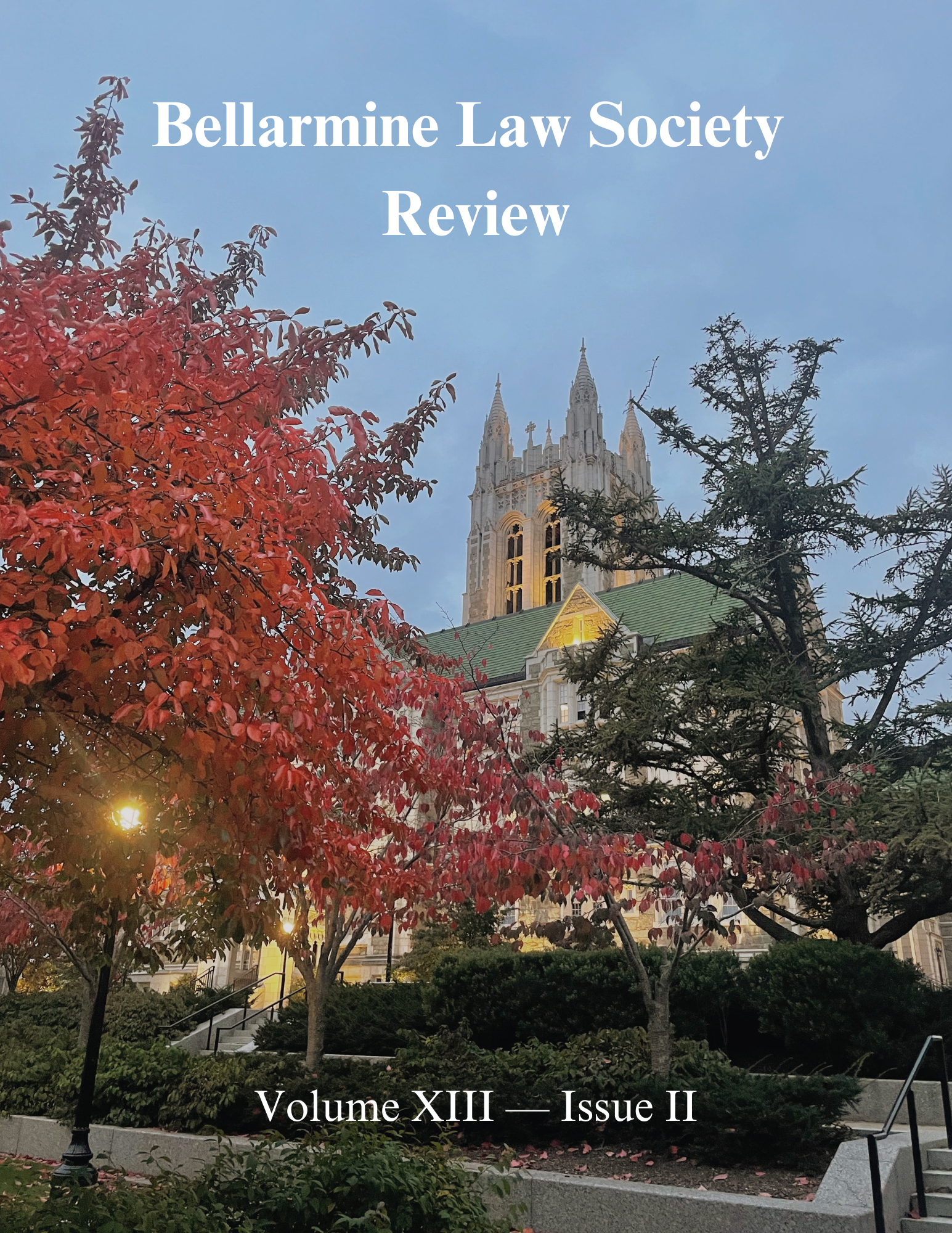
Bellarmine Law Society Review
Vol. 13 No. 2 (2023)In the fall issue of the Bellarmine Law Society Review's (BLSR) thirteenth volume, a diverse group of scholars, including four undergraduates and a standout high-school senior, delve into compelling legal topics. The exploration encompasses a broad spectrum, ranging from Supreme Court rationale and psychiatry to the intricacies of LGBT+ rights and rap music—all viewed through the discerning lens of legal analysis. First, high-school senior Alex Chen navigates the uncertainties surrounding stare decisis interpretation with a thematic approach that unveils the foundational aspects of the Court's opinions and anticipates their future applications. Second, Joshua Darrish's analysis highlights cases like McCreary County v. ACLU and Van Orden v. Perry to accentuate the widening gap between separationist and accommodationist interpretations of the Bill of Rights. In doing so, Darrish argues that maintaining the Establishment Clause's vague nature will safeguard the secularity of the judicial system. Third, Simon Hoefling explores the insanity defense through a cognitive lens rather than one of volition. His argument posits that this approach establishes a higher standard for comprehending criminal culpability. Fourth, Brendan Mahoney dissects the implications of RICO charges, examining their impact on the admission of rap lyrics in the judicial system. Notably, Mahoney invokes topical cases such as State of Georgia v. Kahlieff Adams et al. to argue that restricting charges threatens a rapper's civil liberties. Finally, Darya Treanor examines the historical interpretations of the Second Amendment under D.C. v. Heller to advocate for a broader perspective that not only incorporates but also expands the liberties of LGBTQ+ Americans.
-
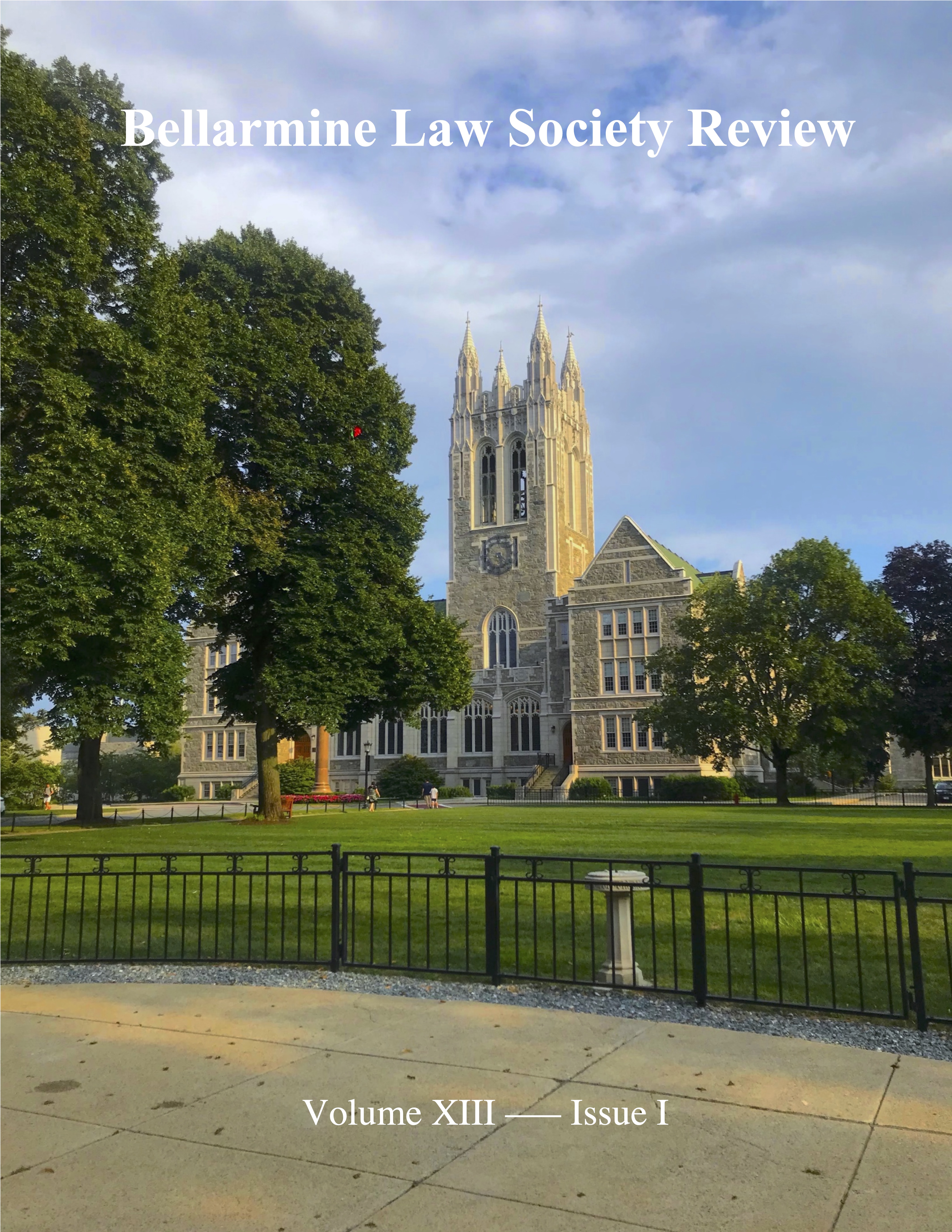
Bellarmine Law Society Review
Vol. 13 No. 1 (2023)In the first issue of the Bellarmine Law Society Review’s thirteenth volume, two undergraduate contributors explore a range of topical issues through the lens of legal analysis. First, Sunderya Ulziibold explores the topical issues of COVID-19 vaccine intellectual property rights by exploring the history of intellectual property rights and contextualizing the issue through the Moderna v. Pfizer/BioNTech case. Second, Lila Zarrella analyzes the Equal Rights Amendment and potential for its ratification, ultimately arguing that despite some shortcomings, the ERA might represent the most applicable and feasible opportunity to cement gender equality under law.
-
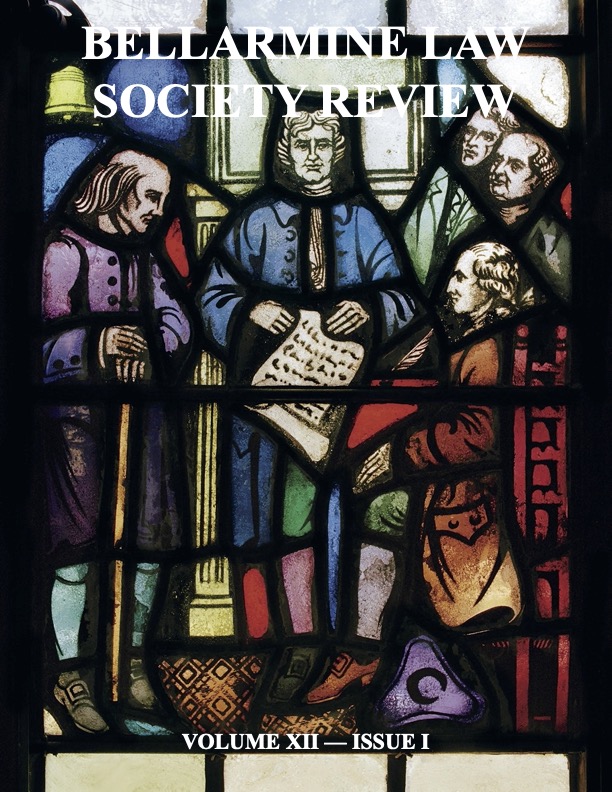
Bellarmine Law Society Review
Vol. 12 No. 1 (2022)In the first issue of the Bellarmine Law Society Review’s twelfth volume, three undergraduate contributors explore a range of topical issues through the lens of legal analysis. First, Rose Kiefer analyzes the impact of U.S. boardroom gender quotas in the workplace, incorporating facets of legal, economic, and social theory to examine the future efficacy of these policies. In our second article, Grace Mendes presents a thorough study of energy legislation and the energy market through a focused consideration of California’s history with renewable technologies, especially solar power. Finally, Christopher Siegert surveys the history of the Writ of Habeas Corpus and its relevance to the federal government’s past usage of the Suspension Clause. As always, many thanks are due to each of these accomplished and capable authors for their rigorous research and the insight that their articles provide on a diversity of legal issues.
-
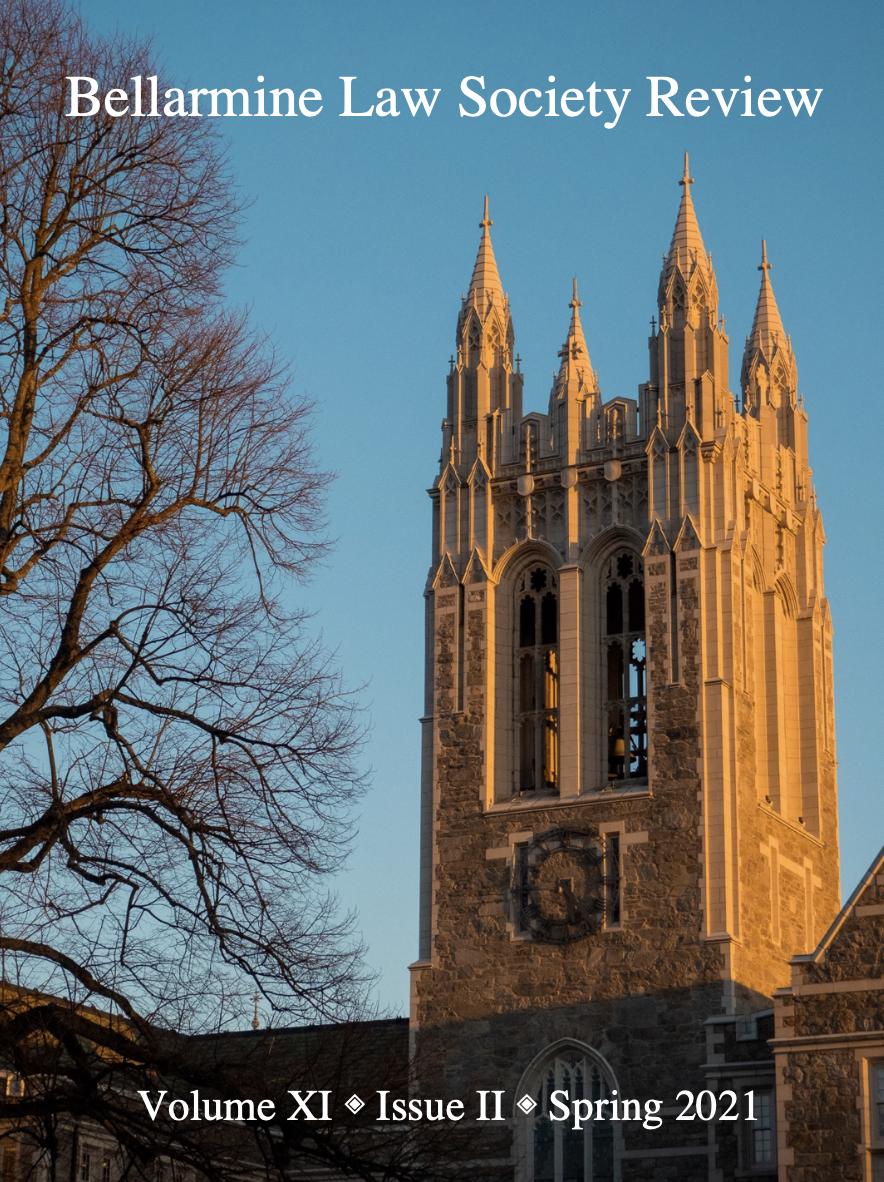
Bellarmine Law Society Review
Vol. 11 No. 2 (2021)Volume XI, Issue II of the Bellarmine Law Society Review features multiple peer-reviewed articles addressing higher education, public sector unions, legal procedure, the law of space, and more. Cover art courtesy of Ethan Byrne.
-
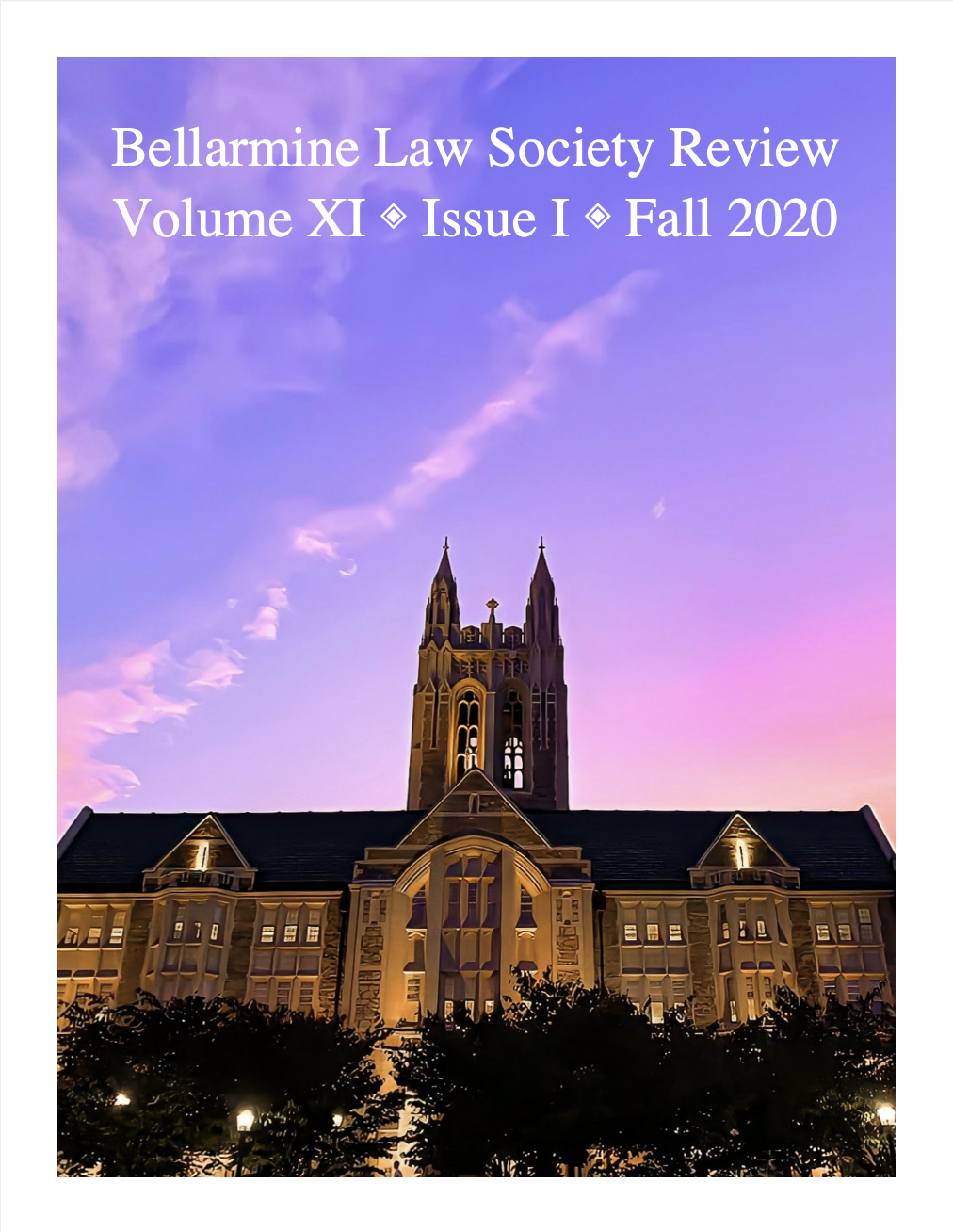
Bellarmine Law Society Review
Vol. 11 No. 1 (2020)Volume XI, Issue I of the Bellarmine Law Society Review features multiple peer-reviewed articles addressing LGBT rights, international legal compliance, criminology, and more. Cover art courtesy of Lucy Rubenstein.
-
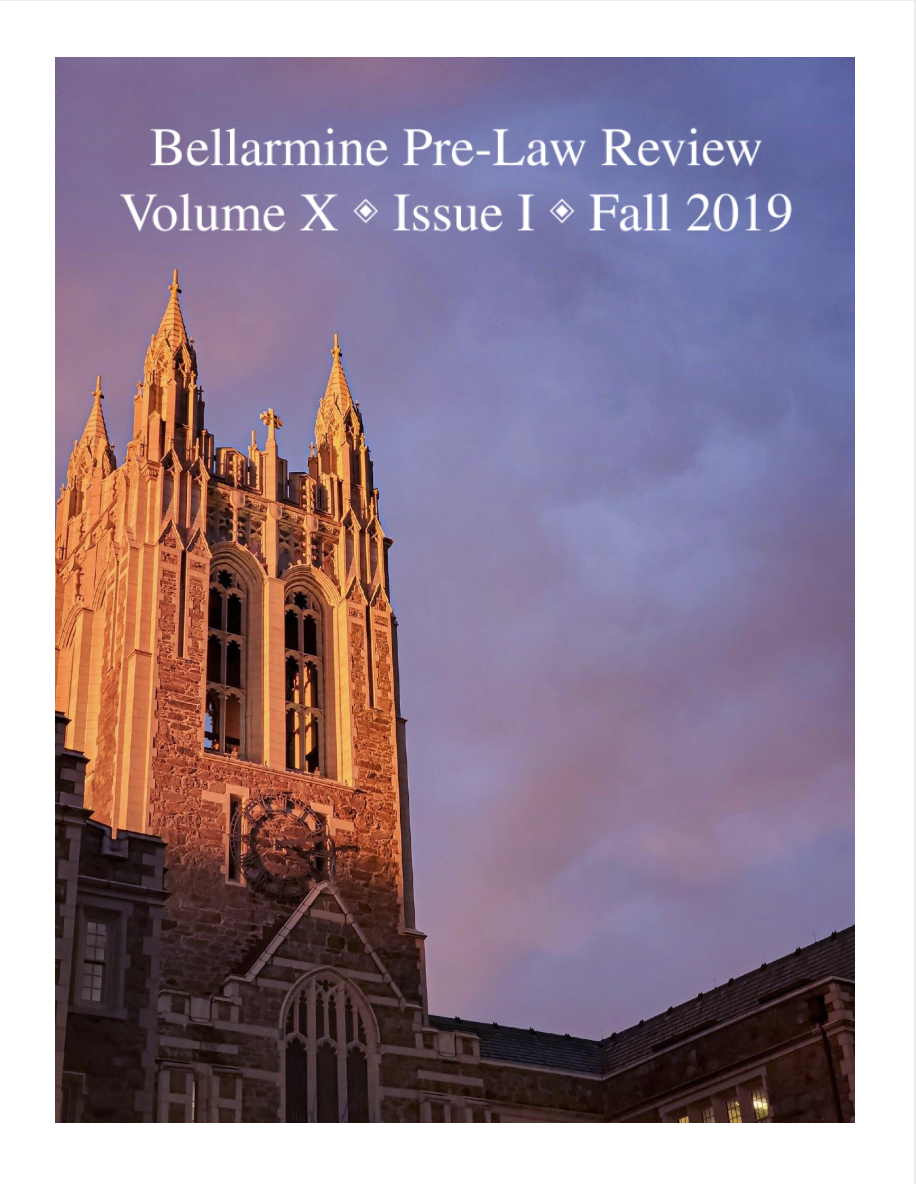
Bellarmine Pre-Law Review
Vol. 10 No. 1 (2019)Under the Bellarmine Law Society Review's former title, Volume X, Issue I of the Bellarmine Pre-Law Review features three peer-reviewed articles addressing voter surpression, sex and sexual orientation, and consumer financial protection. Cover art courtesy of Rebecca Shan.
-
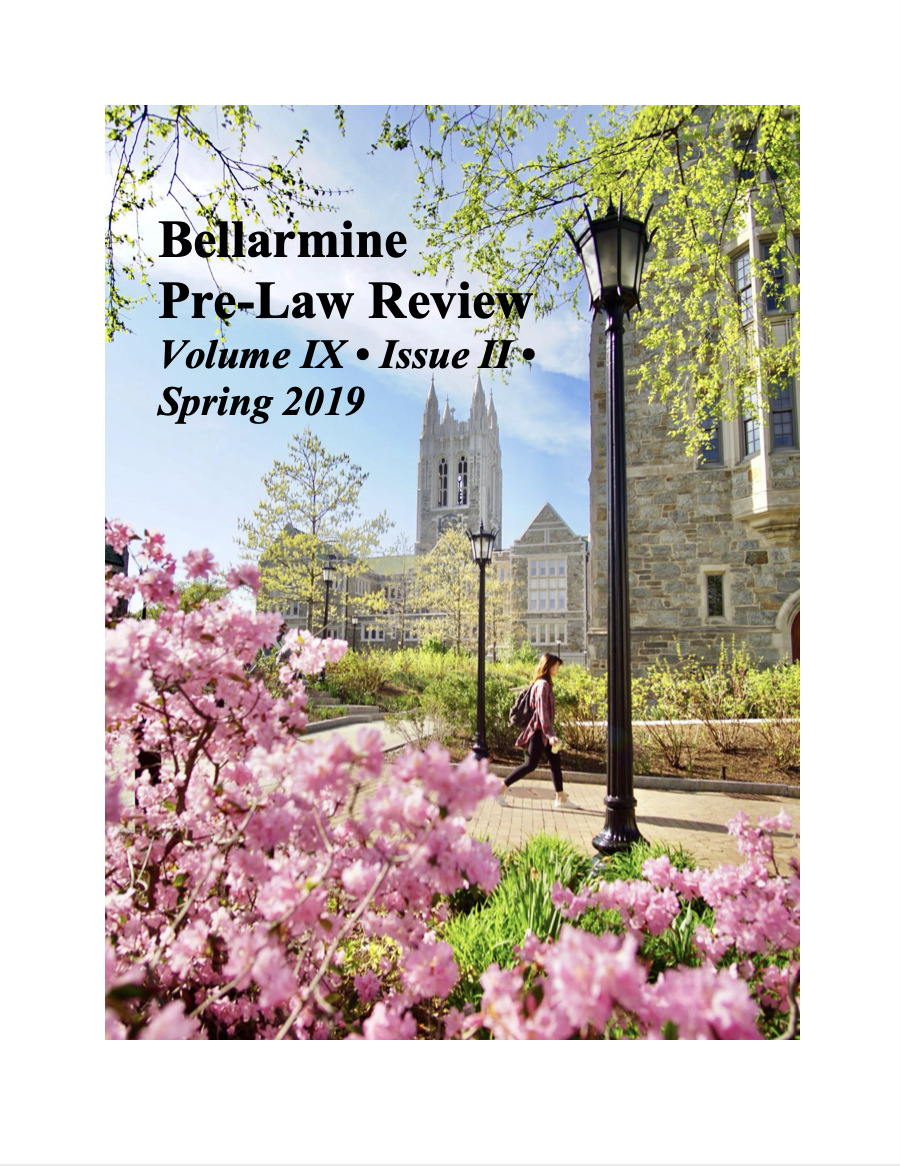
Bellarmine Pre-Law Review
Vol. 9 No. 2 (2019)Under the Bellarmine Law Society Review's former title, Volume IX, Issue II of the Bellarmine Pre-Law Review features four articles addressing: pharmaceutical price-gounging, pension systems, cruel and unusal punishment, and covenants to not compete. Cover art courtesy of Tegar (@tgartgr).

